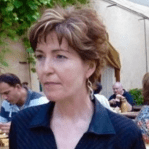
Although knowledge gaps concerning integrated landscape approaches (ILA) are closing, there are still as many questions as there are possible solutions around the popular concept, say researchers investigating ILAs.
Diverse landscapes across Ghana, Zambia, and Indonesia, where ILAs are being researched, trigger many of the same questions about the impacts on human and environmental well-being, COLANDS team members said during the Forests & Livelihoods: Assessment, Research, and Engagement (FLARE) Network conference in October 2023.
At the FLARE event, COLANDS – Collaborating to Operationalise Landscape Approaches for Nature, Development and Sustainability – presented lessons learned, and questions raised, from field research in those three countries.
ILAs assume that collaboration will occur across scales, sectors, and diverse social groups to achieve more equitable and sustainable landscape governance, said Alida O’Connor, a PhD candidate at the University of British Columbia and a COLANDS team member.
But competing demands expressed during farmer interviews in 2022 and 2023 suggest that’s not often the case.
“There is little evidence showing if, how, and when collaborative governance occurs amid a range of priorities competing to be the top priority,” she said.
O’Connor’s interviews with farmers in Zambia and Ghana found over 100 land-use priorities, with the five most common being agriculture, trees, livelihood opportunities, water and livestock. Less clear, however, was the thorny question of who has the power to set the agenda, decide what priorities should be addressed first, and how to do so, she said.
Women, in particular, are frequently disempowered in environmental decision-making; therefore, integrating the rights of women into ILAs is crucial to harmonize social and environmental outcomes, said Houria Djoudi, a scientist with the Center for International Forestry Research-World Agroforestry (CIFOR-ICRAF).
Yet too often, gender considerations have been missing in ILAs, according to extensive reviews of research into the approaches, said Djoudi.
A gender framework for ILAs would “facilitate and contribute to better gender considerations in ILAs,” she said. Such a framework would ideally include: socio-cultural, economic, and political context; women’s influence in shaping landscape decisions and policies; conservation initiatives; representation in formal and informal institutions; and land tenure access and control over resources.
In Indonesia, multistakeholder platforms (MSPs) bridging gaps between organizations and individuals are seen as key in overcoming such challenges, said Linda Yuliani, a senior scientist with CIFOR-ICRAF and COLANDS researcher in Indonesia’s Kapuas Hulu Regency.
Research there is investigating collaborative management of the Danau Sentarum Wetlands Catchment Areas, covering 451,440 hectares and 73 villages with a combined total of about 55,000 people. Sectors ranging from farmers to industry to government to NGOs are all competing to develop particular areas, said Yuliani.
However, while ILAs aim to enhance integration across sectors and stakeholders in a landscape, work is frequently hampered by gaps in understanding integration and putting it into operation, she said.
To address that, a series of multistakeholder workshops on development in the Danau Sentarum sought to find a common vision, shared goals, and collaborative monitoring. Other workshops tried to strengthen a watershed community forum and the tengkawang (illipe nut) farmers’ network, while still more focused on waste management and social forestry.
Finding commonalities is key to bringing such diverse groups together.
“Fostering integration might require liaisons involving local partners and individuals to function as a ‘glue’ between key stakeholder groups and among MSPs,” said Yuliani.
Integration becomes an even greater challenge when there are disputes over use of landscapes – such as the forests and agricultural lands that are important to livelihoods in Zambia’s Kalomo Hills Local Forest Reserve (KFR13), said Kaala B. Moombe, a senior researcher at CIFOR-ICRAF who is working with COLANDS.
Conflicts over resources have erupted amid disputes over ownership and user rights, worsened by high levels of mistrust of the government, minimal multistakeholder dialogue, and conflicting traditional and state governance systems, said Moombe.
“ILAs are a prominent and attractive contemporary strategy that seeks to reconcile conflicting objectives of landscape use,” he said. “However, there remains uncertainty as to ILAs’ applicability and functionality in practice, particularly within contexts that have a history of poor cross-sectorial engagement and/or land-use conflicts.”
Research has found that integration of activities is essential to success as measured across a range of indices of environmental and human well-being, said James Reed, team leader of COLANDS and a CIFOR-ICRAF scientist.
Some studies – albeit short and relatively small-scale – have shown that applying ILA principles led to transformational landscape change in Ghana and Uganda, improving environmental outcomes, livelihoods, and local capacity, said Reed.
Sustainable landscape management strategies that consider ecological and social dimensions can offer a more comprehensive understanding of the landscape, enhanced stakeholder engagement, and improve decision-making processes within an ILA, said Yves Laumonier, a CIFOR-ICRAF scientist and COLANDS team member.
A significant challenge is understanding how data collected at a very small scale might apply to larger areas, such as communities, ecosystems, or landscapes.
“Spatial and temporal scales important to organisms or processes are not necessarily the scales relevant to decision-makers,” said Laumonier. He urged further investigation on the effects of scale, with an emphasis on local levels, as well as increased efforts on co-knowledge development, citizen science, and community-based monitoring.
Acknowledgments
COLANDS is part of the International Climate Initiative (IKI) and is funded by the German Federal Ministry for the Environment, Nature Conservation and Nuclear Safety (BMU).
PhD research that is part of COLANDS is hosted at the Institute for Social Science Research of the University of Amsterdam and the University of British Columbia.
We want you to share Forests News content, which is licensed under Creative Commons Attribution-NonCommercial-ShareAlike 4.0 International (CC BY-NC-SA 4.0). This means you are free to redistribute our material for non-commercial purposes. All we ask is that you give Forests News appropriate credit and link to the original Forests News content, indicate if changes were made, and distribute your contributions under the same Creative Commons license. You must notify Forests News if you repost, reprint or reuse our materials by contacting forestsnews@cifor-icraf.org.












